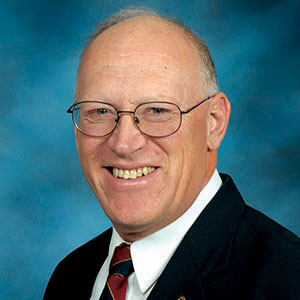Kansas Profile – Now That’s Rural: Jill Kuehny, Border Queen Harvest Hub
At a glance: Through a local community foundation called Vision Caldwell and with support from the Patterson Family Foundation, citizens in Caldwell, Kansas have developed the Border Queen Harvest Hub to connect growers and consumers.
More information: Ron Wilson, rwilson@ksu.edu, 785-532-7690
Photos: Ron Wilson | Jill Kuehny
Website: Huck Boyd National Institute for Rural Development
Jan. 31, 2024

By Ron Wilson, director of the Huck Boyd National Institute for Rural Development at Kansas State University
What if there was a hub that could connect local growers and consumers of food?
What if that hub provided opportunities for producers to expand revenues?
And, what if that hub helped consumers find products that are fresh and local?
Today we’ll learn about a rural community that is making such a hub a reality.
![]() Jill Kuehny is president of a community group known as Vision Caldwell. That group is working with Shop Kansas Farms and its’ founder, Rick McNary. The group is creating an initiative to connect growers and consumers in the Caldwell area.
Jill Kuehny is president of a community group known as Vision Caldwell. That group is working with Shop Kansas Farms and its’ founder, Rick McNary. The group is creating an initiative to connect growers and consumers in the Caldwell area.
At right: Jill Kuehny | Download this photo
McNary founded Shop Kansas Farms in 2020 in response to the supply chain disruptions of the pandemic.
“What began as a Facebook group to connect people to the farm and ranch families of Kansas so they could purchase the food they grow, exploded overnight as consumers discovered local farms had the food they needed,” McNary said.
A website with a searchable map was added as more consumers wanted to buy locally.
“Our Facebook group now has 164,000 consumers looking to buy local,” McNary said. “If you go there or to our website at www.shopkansasfarms.com, you will see it is a digital hub that connects producers, processors and distributors to a state-wide food system.”
Karen Sturm invited Shop Kansas Farms to visit her town of Caldwell, a historic community situated near the Kansas-Oklahoma border. Nicknamed The Border Queen, Caldwell was a key stop along the fabled Chisholm Trail. It’s now a thriving rural community of 1,025 people. Now, that’s rural.
Kuehny is CEO of KanOkla, a leading rural telecom company based in Caldwell. Leaders of Vision Caldwell and Shop Kansas Farms sought to develop a locally-focused hub to link growers and consumers in the Caldwell area. Thanks to a grant from the Patterson Family Foundation, they are launching the Border Queen Harvest Hub.
“We’re going to call it the BQ-Double H,” Kuehny said. “Just like the cattle brands of our storied history of cattle drives on the Chisholm Trail, we will be ‘riding with the brand’ of BQ-Double H.”
The Border Queen Harvest Hub is built on two tracks: community engagement and economic development.
“An important element in creating the hub is the engagement of everyone in the surrounding community,” McNary said. “There will be town halls, charcuterie nights, Market of Farms and other engagement strategies that create a sense of community support and pride in creating a hub that connects everyone.”
The other track on which this is built is economic development. BQ-Double H will expand small businesses with new revenue streams, and support entrepreneurs with opportunities in production, processing and distribution.
The plan is to identify and support current and future producers in the region to create new revenue streams, gain access to capital, find new markets, write business plans, provide sales and marketing support, build customer relationship management systems, develop communications strategies and be more easily found by consumers.
Another element is to identify and support local meat processors and existing commercial kitchens or, if necessary, establish that missing link in the local supply chain.
A third element is to provide support to producers with the distribution of their products by helping them learn how to ship, hosting an annual Market of Farms, making connections to local grocery stores, and finding local markets.
“When this Harvest Hub is established, consumers will be able to look on a map and identify the supply chain of farms where their local food is being produced, the commercial kitchens and lockers where the food is processed and how and where those items can be purchased,” McNary said.
So I ask again: What if a local hub could be created to connect growers and consumers, and provide tools to help? We commend Jill Kuehny, Rick McNary, Karen Sturm, and all those involved with the Border Queen Harvest Hub for making a difference with this initiative to aid in local sourcing and marketing of food.
They are making this hub happen.
Audio and text files of Kansas Profiles are available at http://www.kansasprofile.com. For more information about the Huck Boyd Institute, interested persons can visit http://www.huckboydinstitute.org.
***

K‑State Research and Extension is a short name for the Kansas State University Agricultural Experiment Station and Cooperative Extension Service, a program designed to generate and distribute useful knowledge for the well‑being of Kansans. Supported by county, state, federal and private funds, the program has county extension offices, experiment fields, area extension offices and regional research centers statewide. Its headquarters is on the K‑State campus in Manhattan. For more information, visit www.ksre.ksu.edu. K-State Research and Extension is an equal opportunity provider and employer.